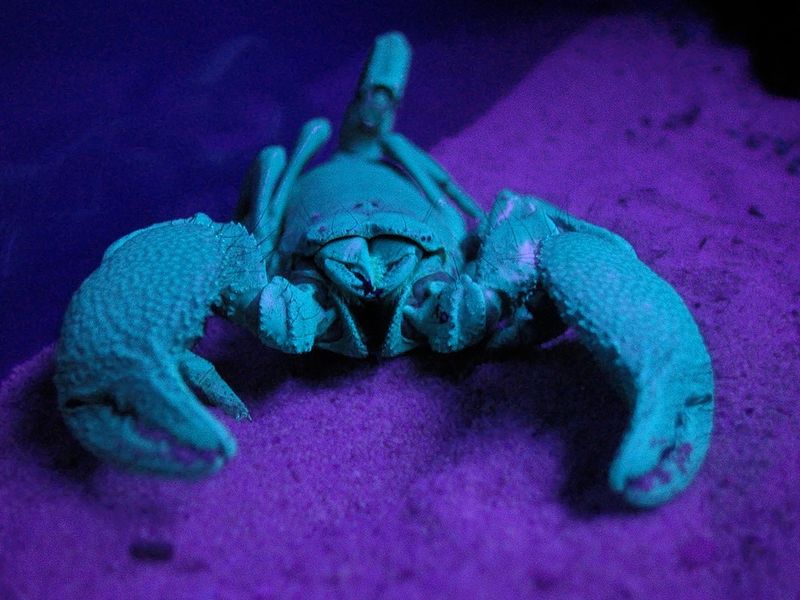 Eyeless scorpions living in deep inside caves in Mexico have returned to light and regained the ability to see, showing that a specialized way of life is not always an evolutionary blind alley.
Eyeless scorpions living in deep inside caves in Mexico have returned to light and regained the ability to see, showing that a specialized way of life is not always an evolutionary blind alley.
Lorenzo Prendini from the American Museum of Natural History in New York, leads a team who have been studying a group of closely related scorpions, many of which have lost their eyes and become pale and unpigmented - both adaptations to life in dark, sunless caves.
Prendini and the team scrutinised nearly 200 physical characteristics of the scorpions to work out how closely related individual species are, including mapping the arrangement of tiny hairs on their pedipalps (the scorpions' large pincers). They then used this data to build a family tree, which revealed that the generalist species living closer to the surface, under stones and leaf litter, have evolved independently more than once from cave-dwelling ancestors.
Until now, it has been widely assumed that when species evolve specialist characters for a particular environment - such as blindness in caves - they cannot reverse that and become less specialised again. Now the scorpions are showing us that they can.
Scorpions first evolved around 450 million years ago and today there are thought to be around 2000 species in the world, but only 23 of them are known to live in the permanent dark deep inside caves - so-called troglobites. The deepest one lives 1km below the surface.
Many of the surface-dwelling scorpions in this area of Mexico were wiped out around 65 million years ago, perhaps by the nearby meteorite impact that some think killed off the dinosaurs.
But we now know that when scorpions evolved to live in caves, they didn't necessarily condemn future generations to remain stuck in the dark, and that loosing eyesight is not an evolutionary dead end.









Comments
Add a comment